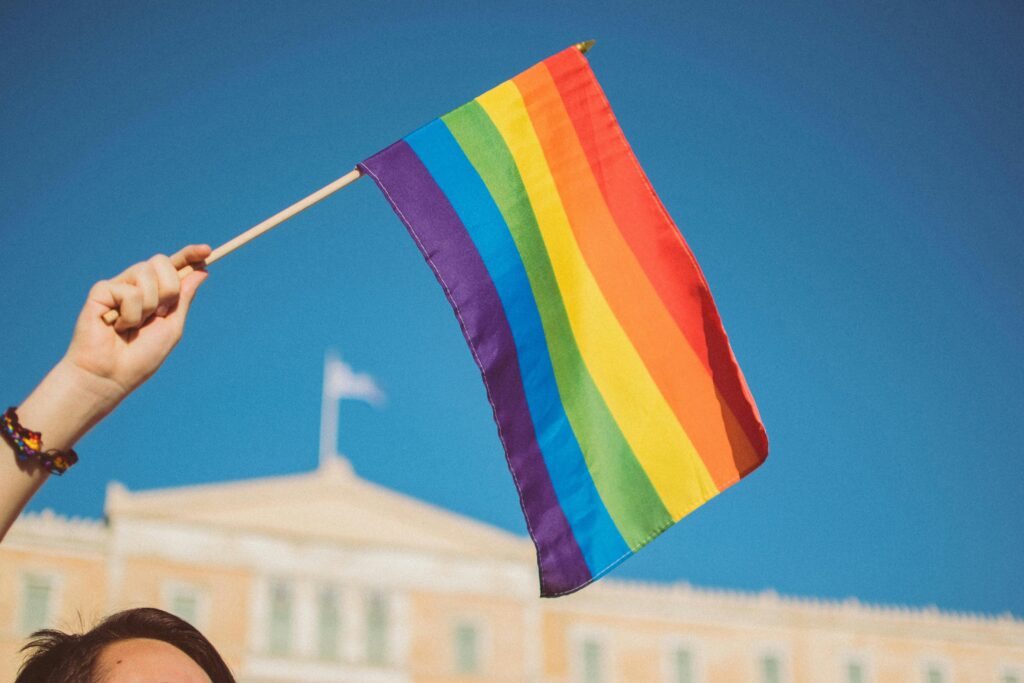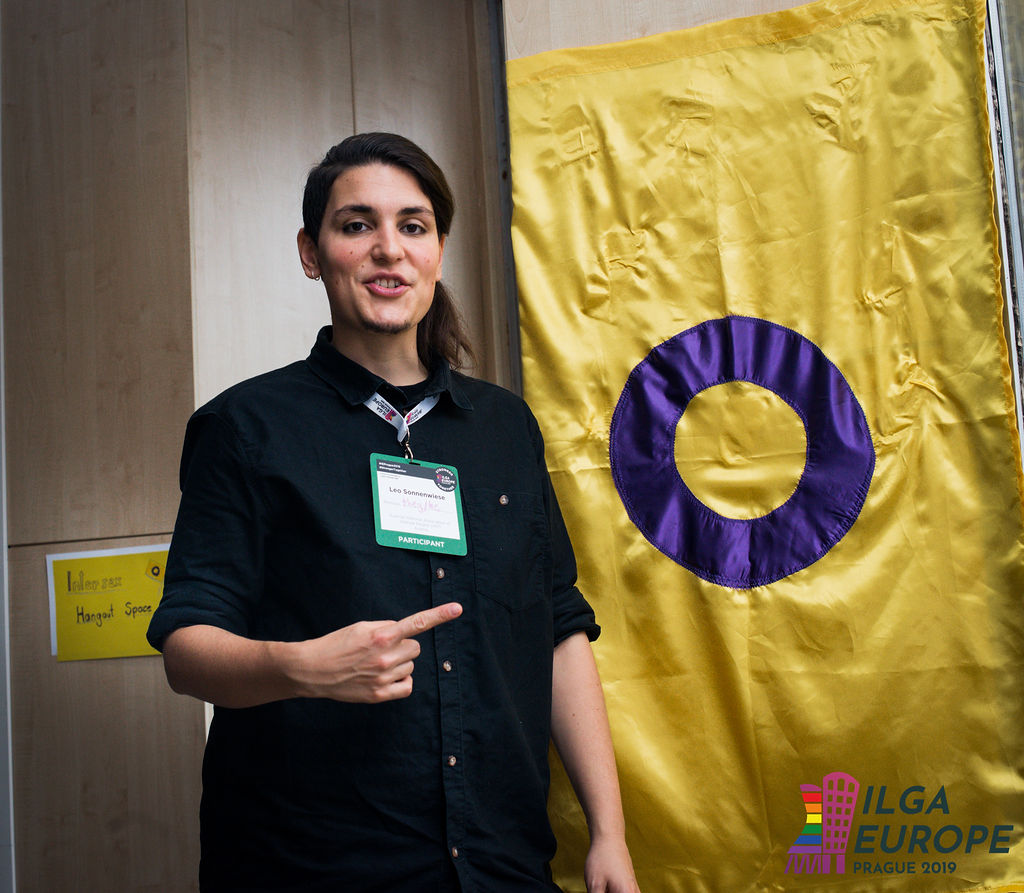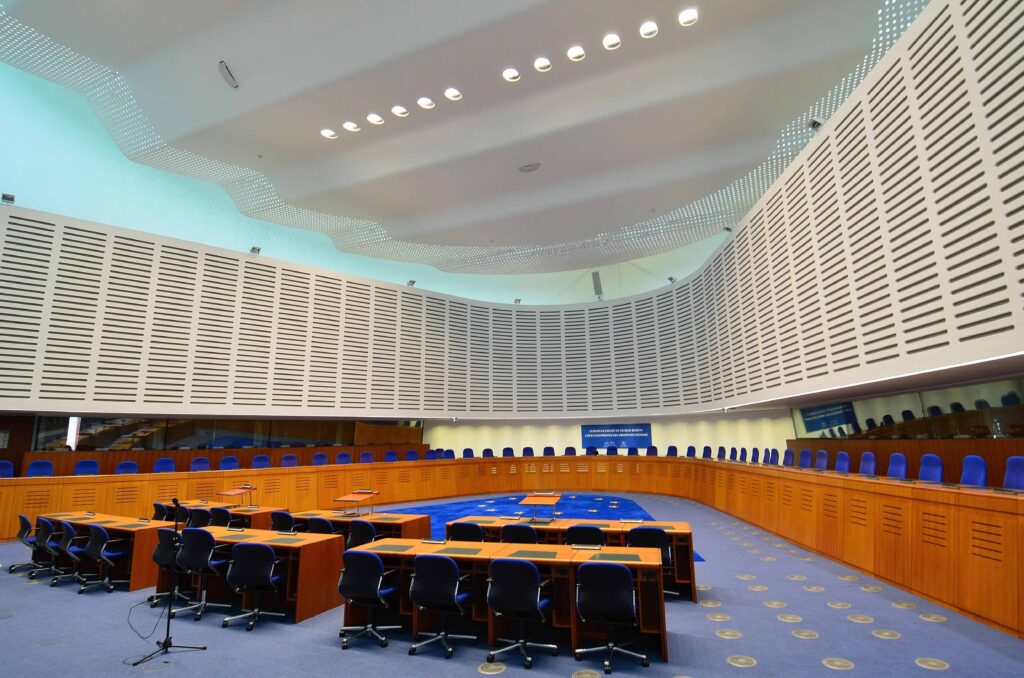Greece
Categories Score
The full bar chart stands for 100%, and is filled by the country category score. The colour display uses the traffic light palette, with Green representing a score closer to 100% and Red a score closer to 0%.
ASYLUM
This category looks into laws that expressly include SOGISC as a qualification criteria for seeking asylum. We also take into account other legislation, policies, instruction or positive measures by state actors that are related to asylum addressing the needs and rights of LGBTI asylum seekers and refugees.
Criteria Compliance Ratio
Each pie charts stands for a category and is divided in slices by criteria. When a country complies with a criteria – fully or in some regions – the slice is coloured.
Keep in mind the criteria have different weighting factor within a category; for example, the criteria Prohibition of medical intervention without informed consent (intersex) stands for half (2.5%) of the INTERSEX BODILY INTEGRITY category weighting factor (5%). Meaning that even if a country can only comply with this specific criteria within the category (1/4 total criteria) the category scores 50%.
More information on the categories and criteria weighting factors here.
Category & Criteria Table
The table lists detailed information and insights on legislation supporting each criterion status. Please use the filters for in-depth analysis.
n/a = not applicable, meaning the criteria didn’t exist in the previous Rainbow Map edition (PROGRESSION column)
- Complies
- Applicable in some regions only
- Does not Comply
RECOMMENDATIONS
In order to improve the legal and policy situation of LGBTI people in Greece, ILGA-Europe recommend:
- Developing a fair, transparent legal framework for legal gender recognition based on a process of self-determination and free from abusive requirements (such as GID/medical diagnosis, compulsory divorce or age restriction) and allowing for name change without obstacles, including no age restriction.
- Recognising trans parenthood, recognition of parents’ legal gender and alignment with available gender options.
- Strengthening police protection for LGBTI public events, including protection from disruption or attacks.
Annual Review of Greece
In our Annual Review of the Human Rights Situation of LGBTI People in Europe and Central Asia, we examine the advances made and provide concrete examples of on-the-ground situations at national level country-by-country in the 12 months from January to December 2024.
Read our Annual Review of Greece below for more details and stories behind the Rainbow Map. You can also download the Annual Review chapter (.pdf) covering Greece.
-
The marriage equality law (5089/2024) entailed the establishment of a series of guarantees for equal treatment regardless of Sexual Orientation, Gender Identity and Expression, and Sex Characteristics (SOGIESC) in the provision of goods and services, education, healthcare and housing. (See more under Family.)
-
The government gave a six-day deadline to civil society to comment on the new immigration law, which civil society criticised as outdated on LGBTI+ issues and completely omitting LGBTI+ migrants.
-
In March, a violent mob of about 150 people targeted two trans people in Thessaloniki, assaulting them and hurling bottles.
When the two sought refuge in a restaurant, the attackers continued their aggression by banging on the windows and taunting them. The police later apprehended 21 people, including 11 minors, in connection with the attack.
The following day, a group of around 50 masked men attacked demonstrators at a protest organised to denounce the incident and the widespread scope of anti-LGBTI violence.
Several conservative public figures, including politicians (1, 2, 3), artists and members of the Greek Orthodox church (1, 2) engaged in bias-motivated speech against the marriage equality law before and while it was being discussed in the Parliament.
The Orthodox church expressed its official opposition to marriage equality through the Holy Synod of the hierarchy.
In May, transphobic comments targeted Nemo and Bambie Thug, two openly non-binary contestants in the Eurovision Song Contest.
In September, Markos Seferlis, a comedian known for expressing hate against minority groups, attempted to ridicule Nemo in a performance that portrayed non-binary identities as indecisive and a new trend.
Protests titled “Family Pride” were organised in Athens, Thessaloniki and Chania in the summer as counter-protests to Pride, conveying homophobic messages against the right of same-sex couples to marry and adopt. The protest initially expected in Athens was cancelled after the public reacted against it and citizens’ groups organised a counter-protest.
In May, two LGBTI-phobic incidents took place at a street party for Athens Pride. Witnesses reported agitators approaching the area and hurling discriminatory statements at the participants as well as spitting on some of them.
In June, a homophobic verbal attack by lawyer Alexis Kougias against Stefanos Kasselakis, the then-leader of opposition party SYRIZA, sparked the intervention of the Supreme Court prosecutor.
The conservative newspaper Estia published a cover article referring to the rights of LGBTI people as “privilege”. The article interpreted the 2024 Athens Pride motto, “A law is not enough,” which called for marriage equality, as a demand for special privileges.
Shortly after the US elections, Minister for Health, Adonis Georgiadis, blamed the “woke agenda” for “making US politics pathetic” and ex-Prime Minister Antonis Samaras expressed a similar opinion.
-
Sex education material by Rainbow School was removed from the website of the Institute of Educational Policy.
The government did not issue guidelines against bullying in schools on SOGIESC grounds, after backlash by the far-right and the church against the marriage equality law, as described in Law 5029/2023, which is in effect since March 2023.
In October, a middle school teacher in Lavrio who distributed homophobic material to his students as part of their Religious Studies course was suspended.
-
After the 2024 European elections and the low electoral results of his party, Prime Minister Kyriakos Mitsotakis gave a TV news interview claiming that his party suffered political damage due to the marriage equality legislative initiative. Additionally, he noted that no other change will be made regarding family law and specifically on adoption. Instead, he announced wanting to focus on improving societal attitudes towards LGBTI issues rather than on implementing further legislative change.
In November, party Elliniki Lysi (“The Greek Solution”) submitted a proposal to repeal the marriage equality law and the legal gender recognition law. In another instance, the party Niki (“Victory”) submitted a proposal to “protect the two genders and minors”, aiming to “ban gender ideologies and non-traditional sexual orientations”, erase the term “gender identity” from the Greek legislation and prevent minors from accessing trans-specific healthcare.
Three associations submitted a petition to the Council of State claiming the marriage equality law is unconstitutional because “it fundamentally modifies the traditional institution of family”. The National Commission for Human Rights intervened in favour of its constitutionality. The trial has been postponed to April 11, 2025.
-
In February, Greece became the first Orthodox-majority country to legalise same-sex marriage. The bill passed with the support of 176 out of 300 MPs, also allowing same-sex couples to adopt children and granting equal parental rights to both partners. However, the bill does not include provisions for surrogacy for same-sex couples. Furthermore, while it abolishes the requirement of being unmarried to access legal gender recognition, it does not include any provision to modify a parent’s name and gender on the birth certificate of their children after legal gender recognition.
The mother of a trans child was deprived of custody (also here) after a local court ruled that she was trying to “push the child towards female gender expression” instead of “gender neutralisation”.
-
In March, the youth branch of neo-nazi criminal organisation Golden Dawn attacked Colour Youth’s offices in Athens. On the day of the event, Colour Youth was organising a party to advocate for the reappropriation of LGBTI-phobic statements by LGBTI people but the event was eventually cancelled because of threats circulating on social media.
This year, Thessaloniki welcomed Europride, which brought together 15,000 people. The march, themed “Persevere, Progress, Prosper,” took place on the ninth and final day of a series of events held across the city.
-
In July, it was reported that a Christian organisation made attempts to attract trans women and sex-workers and subject them to conversion practices in Syggrou Avenue in Athens.
In October the SEGM, an organisation of mental health professionals, considered a hate group by the Southern Poverty Law Centre (SPLC), organised a conference in Athens leading to opposition by civil society, which denounced the pathologisation of trans identities promoted by the event.
-
The film “Lesvia” by Tzeli Chatzidimitriou, a documentary about the lesbian community in Eressos, was released to audiences in Greece and abroad.
In December, the National Museum of Contemporary Arts hosted Maria Cyber’s exhibition “Portraits”, a moment of lesbian representation and visibility in the arts.
-
In July, the Athens Appeal Court convicted two men for the 2018 murder of Greek LGBTI activist Zack Kostopoulos. The murderers, aged 65 and 80, were sentenced to six and five years respectively. The court ruled that the older of the two could serve his sentence at home.
In June, the murderer of Anna Ivankova, a trans woman who was killed in Athens in 2023, was convicted to life imprisonment without the recognition of mitigating circumstances.
The full Annual Review for 2025 is available here.






